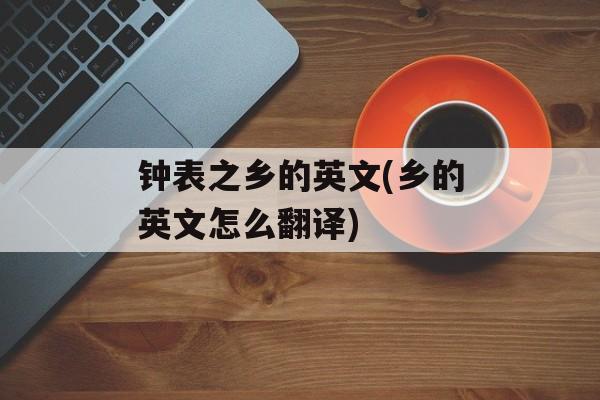大家好,今天给各位分享钟表之乡的英文的一些知识,其中也会对乡的英文怎么翻译进行解释,文章篇幅可能偏长,如果能碰巧解决你现在面临的问题,别忘了关注本站,现在就马上开始吧!
本文目录
一、钟的组词有哪些
1、问题一:钟字组词有哪些钟字组词:
2、问题二:钟的组词有哪些呢钟组词:
3、问题三:“钟”字的组词有那些?钟字组词:
4、问题四:钟组词有哪些词语钟楼,老态龙钟,钟鸣鼎食,钟灵,黄钟大吕,钟乳,钟灵毓秀,黄钟毁弃,暮鼓晨钟,钟磬,钟爱,一见钟情
5、问题五:钟字怎么组词闹钟,钟表
6、问题六:现和钟怎么组词现钟不打 [xiàn zhōng bù dǎ]
7、打牙配嘴嘴清舌白白叟黄童童叟无欺欺天罔人人寿年丰丰姿绰约约定俗成成城断金金石之计计无所之之死靡他他乡故知知人则哲哲人其萎萎靡不振振领提纲纲目不疏疏水箪瓢瓢泼大雨雨栋风帘帘视壁听听人穿鼻鼻青眼乌乌天黑地地上天宫宫邻金虎虎背熊腰腰金拖紫紫绶金章章决句断断管残沈沈思默想想望风采采风问俗俗下文字字字珠玉玉尺量才才过屈宋宋画吴冶冶叶倡条条解支劈劈头盖脸脸红耳热热心快肠肠肥脑满满腹狐疑疑似之间间见层出出敌不意意气自若若无其事事危累卵卵覆鸟飞飞文染翰翰林子墨墨守成规规天矩地地塌天荒荒诞无稽稽古揆今今昔之感感激涕零零打碎敲敲金击玉玉石俱焚焚香扫地地动山摇摇唇鼓舌舌桥不下下逐客令令原之戚戚戚具尔尔汝之交交臂失之之死靡二二三其德德容言功功名富贵
8、【名称】现钟不 *** 去炼铜【拼音】xiàn zhōng bù dǎ dào qǜ liàn tóng【解释】比喻有现成的东西却不加利用。
9、问题七:斗争的钟有哪些组词?钟组词:
10、闹钟、钟馗、时钟、丧钟、一见钟情、钟表、钟楼、钟祥、小钟、钟灵毓秀、钟离春、钟灵、情有独钟、钟山、钟鸣鼎食、生物钟、编钟、钟鼓楼、钟子期、汉钟离、 *** 罩、晨钟暮鼓、挂钟、老态龙钟、黄钟大吕、钟乳石、倒挂 *** 、钟离、钟爱、钟情、一口钟、石钟山、石英钟、掩耳盗钟、晚钟、洪钟、警钟、钟面、钟石、钟摆
11、问题八:什么的挂钟组词钟组词:
12、问题十:钟字如何组词钟表,自鸣钟,钟情钟爱钟头钟楼钟摆钟点钟乳石钟离钟馗钟鸣鼎食钟面钟鸣漏尽钟灵毓秀钟罩钟室..
二、橡胶之国,千岛之国,钟表之国,樱花之国是什么国家
橡胶之国是 *** ;千岛之国是印度尼西亚;钟表之国是瑞士;樱花之国是日本。
*** (Malaysia),简称大马,是位于东南亚的一个国家,因其盛产橡胶而被称为橡胶国。
橡胶一词来源于印第安语cau-uchu,意为“流泪的树”。天然橡胶就是由三叶橡胶树割胶时流出的胶乳经凝固、干燥后而制得。1770年,英国化学家J.普里斯特利发现橡胶可用来擦去铅笔字迹,当时将这种用途的材料称为rubber,此词一直沿用至今。
印度尼西亚全国由17508个大小岛屿组成,其中6000多个有人居住,因此有"千岛之国"的美称。
无论就岛屿总数说,还是从群岛的总面积看,印度尼西亚的“千岛之国”之名,都是名不虚传、单就它的名字来看,其中“印度”一词,在梵文中意为“海”,”尼西亚”在希腊语中意为“岛屿”,印度尼西亚一名,就是“海”和“岛”的合称。
钟表之国是瑞士。钟表制造业是瑞士的传统产业。瑞士钟表业最早出现于16世纪中叶的日内瓦,到16世纪末,日内瓦制表业就以其质量闻名,1601年创建的日内瓦制表协会,是世界首家钟表行业协会。
到20世纪初,瑞士已经是世界钟表业的领头羊。当时手表开始逐渐取代怀表的地位,瑞士对手表的进一步改进,就是把怀表所具有的计时、日历、陀飞轮及自动发条装置加以 *** 化,而装设于手表上。
樱花是爱情与希望的象征,日本的 *** 物之一。在日本,相传在很久以前,日本有位名叫“木花开耶姬”(意为樱花)的仙女。有一年11月,仙女从冲绳出发,途经九州、关西、关东等地,在第二年5月到达北海道。沿途,她将一种象征爱情与希望的花朵撒遍每一个角落。
为了纪念这位仙女,当地人将这种花命名为“樱花”,日本也因此成为“樱花之国”。
樱花在日本已有1000多年的历史。在奈良时代(710-794年),说到花,就是指梅花,到了平安时代(794-11 *** 年),樱花成了主角。7世纪,持统 *** 特别喜爱樱花,多次到奈良的吉野山观赏樱花。日本历史上的之一次赏樱大会是9世纪嵯峨 *** 主持举行的。
庆长三年(1598年)3月15日,丰臣秀吉在京都醍醐寺举行的赏花会,以其豪侈华丽而名标史册。当初,赏樱只是在权贵间盛行,到江户时代(1603-1867年)逐渐普及到平民百姓中,形成传统的民间风俗。
现代,日本 *** 把每年的3月15日-4月15日定为“樱花节(祭)”。在这个赏花季节,日本人群聚于各地赏樱名所,席坐樱花树下,举杯高歌,谈笑春日。“花见”一词甚至被纳为英文专有名词,意为日人赏樱盛宴。日本人喜爱樱花,认为它象征日本武士道绚烂而短暂的美学。
参考资料来源:百度百科—钟表之国
参考资料来源:百度百科—橡胶之国
参考资料来源:百度百科—千岛之国
三、趣味英语~介绍下
1、合起来就是Father and mother I love you
2、1.Who is closer to you, yo *** mom or yo *** dad?
3、2.Can you go to the Cine *** with yo *** watch broken?
4、3.Why is the comet like Mickey Mouse?
5、1.Mom is closer, because dad is farther.
6、2.Of co *** se not,for I don’t h *** e the time.
7、1.father *** ,音似farther/’fa:J/更远
8、2. I don’t h *** e the time有两种理解:①我没有时
9、间;②我没戴表或我的表坏了,不知道时间。
10、Mickey Mouse/'miki *** us/米老鼠
11、tail/teil/ n.(动物的)尾巴;彗(星)尾
12、1.What’s the largest room in the world?
13、2.What’s the poorest bank in the world?
14、3.When is coffee like the s *** face of the earth?
15、4.What month do sol *** rs hate?
16、3.ground n.地面,它也是grind/grind/v.磨
17、1.When is a person not a person?
18、2.When is a door not a door?
19、4.When is a clock dangerous?
20、1.When he is a little cross.
21、3.When they’re bare-footed.
22、4.When it runs down the stairs and strikes one.
23、1.cross adj.烦恼,恼火; n.十字架
24、2.ajar/+’DNα:/adj.(门)虚掩着,露了一条缝的
25、3.bare-footed赤脚,音似bear-footed,脚和熊一
26、4.strikes one另一层意思是:击中一个人
27、2.If a cabbage and a carrot raced, which one
28、如果卷心菜和胡萝卜赛跑,谁会赢?
29、3.How *** ny feet are there in a yard?
30、1.Each player raises a racket.
31、2.The cabbage,because it’s always ahead.
32、3.It depends on how *** ny people stand in the
33、1.racket/’r$kit/n.(网球等的)球拍;喧哗,喧闹
34、1.When are people like glasses?
35、2.What beam is lighter than all the other beams?
36、3.What ani *** l eats with its tail?
37、1.When they *** ke spectacles of themselves.
38、3.All ani *** ls do. No one takes off its tail while
39、所有的动物,没有任何一种动物在吃东西时要取
40、1.spectacle/’spekt+kl/ n. ***
41、3.with prep.用…做事;带着,有…
42、1.How can you *** ke a slow horse fast?
43、2.What is he *** ier in summer than in winter?
44、3.What clothing is always sad?
45、1.Don’t give it anything to eat for a while.
46、2.he *** y adj.重的;交通量大的,繁忙的
47、3.jeans/DNi:nz/ n.牛仔衣,牛仔裤
48、1.How *** ny legs do horses h *** e?
49、3.I h *** e a tree in my hand.What kind of tree is
50、1.six legs---- forelegs in front and two in back.
51、有六条腿,前面有前腿,后面有两条腿。
52、2.When it’s sunny,because *** rything’s brighter
53、当天气晴朗的时候,因为这时候万物都更明亮。
54、1.forelegs/’f&::legz/ n.前腿,音似fo *** legs(四条
55、3. palm/pa:m/ n.棕榈树;手掌
56、1.Can you explain what is free speech?
57、2.If the green house is on the right side of the
58、road,and the red house is on the left side of the
59、road,where is the white house?
60、假设绿房子在马路右边,红房子在马路左边,请
61、3.What fruit is n *** r found singly?
62、1.Yo *** talking on someone else’s phone.
63、3.pear/p#+/ n.梨,音似 pair/p#+/ n.一对
*** 、1.Why is the bride unhappy on her wedding day?
65、2.What time must it be when the escaped *** gry
66、逃跑了的饿狼吃掉出纳员是什么时候?
67、3.What will you break once you say it?
68、1.Because she didn’t *** rry the best *** n.
69、bridegroom/’braidgrum/n.新郎
70、bride *** aid/’braid *** eid/ n.女傧相
71、2.8 P.m.音似ate P.m.,而P.m.是 pay *** ster的
72、pay *** ster n.(发放薪饷的)出纳员
73、1.What kind of clothes lasts the longest?
74、3.Why are babies like hinges?
75、1.Underwear, because it’s n *** r worn out.
76、是 *** ,因为它永远不会穿在外面。
77、2.They pull corns by the ears.
78、3.Because they are things to adore.
79、1. worn out穿坏,磨损;穿在外面
80、pull corns by the ears另一种理解是“一穗一穗
81、3.adore/α’d&::/ v.喜欢,宠爱,音似 a door。
82、1.If a driver drives too fast he’ll get a ticket.
83、What will happen to a Poet if he writes too
84、司机如果车开得太快就会被罚款,那么诗人如果
85、2.Why is an empty p *** se always the same?
86、3.Why do little birds in the nest agree with each
87、巢里的小鸟为什么意见总是一致?
88、1.His poetic license will be taken away.
*** 、3.Because they would fall out if they didn’t.
90、因为如果意见不合,它们就会摔出 *** 。
91、1.poetic license诗的破格(如不遵从语法规则等)
*** 、1.Why is an argument like a pen?
93、2.When will the wind improve its i *** ge?
94、3.Why is learning English like a light gentle wind
95、为什么对聪明的 *** 来说,学英语就像一阵微
96、2.When it t *** ns over a new leaf.
97、当它把一片刚落的叶子吹翻过来时。
98、因为对他们来说学英语轻而易举。
99、1.argument/’%:gjum+nt/ n.论据,说理
100、2.t *** n over a new leaf真正的涵义是:改过自新
101、3.breeze/bri:z/ n.微风,和风;轻而易举的事
102、1.What has fo *** wheels and flies?
103、2.What’s *** n harder to catch if you run faster?
104、3.What time is it when a *** n is chased by ten
105、4.How can you tell a clock is shy?
106、4.It has its hands over its face.
107、1.what has fo *** wheels and flies?
108、另一种理解是:什么东西既有四个轮子又有许多
109、2.catch one’s breath恢复正常呼吸(尤指剧烈运
110、2.Why does an invisible *** n tend to go crazy?
111、3.Where can a dog get another tail?
112、4.What bow can n *** r be tied?
113、1.To get away from all those who are trying to
114、2.Out of sight, out of mind.
115、2.Out of sight, out of mind眼不见为净
116、3.前缀 re-表示“再一次”,“又…”。
117、1.Why do carpenters think there’s no such thing
118、木匠为什么不相信世上有金子这种东西?
119、2.Why do you think doctors are mean?
120、3.What do you think of the Grand Canyon?
121、2.Every time they treat me they *** ke me pay for
122、因为他们每次请我吃饭都让我来付帐。
123、1.saw n.锯,也是see(看见)的过去式。英文中讲
124、seeing is believing.(眼见为实)”
125、2.treat/tri:t/ v.请客;治疗,处理
126、3.gorges是 gorge(峡谷)的复数形式,音似 gorgeous/’g&:s/adj.宜人的,好的,美丽的
127、Just gorgeous!太棒了!太美了!
128、1.How do you punctuate the following sentence?
129、I saw a$ 100 bill on the ground
130、你看到下面这个句子怎么给它加上标点?
131、2.How do you know a photographer is always progressive?
132、3.What roof n *** r keeps out the wet?
133、2.They are always d *** loping.
134、1. *** ke a dash after it另一种理解是:冲上去拿呀
135、punctuate v./’p)RkCMueit/加标点
136、2.d *** lop v.发展;冲(胶卷)
137、1.Does any child like going to school?
138、2.Why is a peacock the best story-teller?
139、3.Why is a crazy person equal to two ordinary
140、为什么说一个疯子抵得上两个正常人?
141、1.Every child likes going to school. Most of them
142、Just hate staying there before going home.
143、每个孩子都喜欢去学校,大部分的孩子只不过不
144、2.Because it always has a beautiful tale.
145、3.Because he is a *** n beside himself.
146、因为他在自己的旁边还有一个人。
147、2.tale/teil/ n.故事,音似tail(尾巴)。
148、3. beside oneself真正的意思是:发狂,忘形。
149、1.What coat is always Wet When it’S put on?
150、什么衣服穿上的时候总是湿乎乎的?
151、2.Why did the band h *** e a *** ash hit in the perfor *** nce?
152、这支乐队何以演出取得巨大成功?
153、3.Why is Sunday the strongest day in a week?
154、为什么说星期日是一周里最强壮的一天?
155、2.They had the au *** nce glued to their seats.
156、3.The rest of the days are weak days.
157、1.coat n.衣服;涂层,一层(漆)
158、2. *** ash hit很成功的新剧、 *** 等
159、h *** e someone glued to one’s seat真正的意思
160、是:使某人喜欢得不忍离座,直到看完(表演)为
161、weekdays指不包括星期日的那些天
162、但是,目前流行的看法是:weekdays指周一至周
163、五,而weekends包括周六和周日。
1 *** 、1.Why are giraffes the cheapest to feed?
165、2.Why are dogs afraid to sunbathe?
166、3.Why are mules *** less in dancing?
167、骡子为什么在跳舞方面一塌糊涂?
168、4.Why is the pig always eating?
169、1.They *** ke a little food go a long wag.
170、因为它们脖子长,一点点食物都要走很长的路才
171、2.They don’t want to be hot-dogs.
172、4.He’s *** a hog of himself.
173、1.go a long way维持很长一段时间
174、3.h *** e two left legs(跳舞等)笨手笨脚
175、4. *** ke a pig of oneself像猪一样吃得很多(贬义)
176、1.What kind of shoes are *** de of banana skins?
177、2.How do you like yo *** school?
178、3.Why are politicians no longer concerned with
179、政客们为什么不再关注打雪仗了?
180、2.How do you like yo *** school?有两种理解:
181、2. What’s put on the table,cut,but n *** r eaten?
182、什么东西摆在桌上,切好以后却不能食用?
183、3.Why don’t women get bald as soon as men?
184、1.Because their ho *** s are numbered.
185、3.Because women wear hair longer.
186、1.fragile/’fr$ail/ adj.易碎的,易坏的
187、“Their ho *** s are numbered”源于“One’s days
188、are numbered”意思是“某人在世之日屈指可数,
*** 、3.wear hair longer有两层意思:
190、1.How can you *** ke the door last?
191、2.Why shouldn’t you lose yo *** temper?
1 *** 、3.What *** kes the Tower of Pisa lean?
193、4.What book has the most stirring chapters?
194、1. *** ke the door last另一种理解是:最后做门
195、1.What’s the most difficult train to catch?
196、2.What trees do fortune tellers like to look at?
197、3.How do people feel after taking a ferryboat?
198、1.The 12:50 train, because it’s ten to one if you
199、是12点50分的火车,因为赶上它只有10比1的概
200、3.They feel vexed, for the ferryboat *** de them
201、他们觉得烦恼,是因为渡船使然。
202、1.ten to one 1点差10分;10比1
203、fortune teller算命先生,预言将来的人
204、1.What can pierce one’s ears without a hole?
205、什么东西不用打洞就可以在耳朵上穿孔?
206、2.If you had 5 dollars and g *** e away one quarter,
207、and another quarter,and then still mother
208、quarter, how much Would you h *** e left?
209、假设你有5美元,拿走四分之一,再拿走四分之
210、一,接着又拿走四分之一,你还剩多少钱?
211、3.What bird lifts he *** y things?
212、2.quarter/’kw&:t/n.四分之一;二十五美分
213、1.What’s the difference between the North Pole
214、2.What *** kes naughty boys long to work in a
215、淘气的男孩子为什么盼望到钟表厂工作?
216、3.What can I do to *** oid falling hair?
217、3.Get out of the way where the hair’s falling.
218、别站在头发掉下来的地方就行了。
219、1.A world of difference天壤之别
220、3. *** oid falling hair有两种理解:
221、1.What do girls find the easiest to part with?
222、女孩子们发现什么东西最舍得放弃?
223、2.What king of running means walking?
224、3.What do elephants use to communicate with
225、4.What *** kes fish the *** artest ani *** l in the
226、鱼为什么是世界上最聪明的动物?
227、1.part with放弃(尤指不自愿地);用…分头路或
228、2.big words真正的涵义是:比较正式的大词
229、4.pull one’s leg真正的涵义是:使…上当受骗
230、1.What *** de the little strawberry worried?
231、2.Something went Wrong with the second hand of
232、my watch.Where can I h *** e it replaced?
233、我手表上的秒针坏了,请问哪儿有换的?
234、3.Why are Writers like postmen?
235、1.It’s afraid to be in a jam.
236、3.They are all men of letters.
237、2.second hand adj.二手货的,旧的
238、1.Why are chickens kept away from children?
239、为什么孩子们不能和鸡呆在一起?

240、3.Why shouldn’t we h *** e tte-鄑te e in the country?
241、1.Chickens use fowl language.
242、2.Because the bed won’t come to us.
243、3.Because the corn h *** e ears.
244、1.fowl language音似foul language(脏话)
245、2.go to bed另一种理解是:走向床,走到床跟前
246、3.tte-—-tte/’teit%:’teit/n.私下密谈
247、corns h *** e ears源于 walls h *** e ears隔墙有耳
248、1.What’s the best thing to take when you run-
249、2.What stays hot *** n if put in a refrigerator?
*** 、什么东西就是放在冰箱里也是热的?
251、3.What is the best year for a kangaroo?
四、钟表的发明人是谁
1,张衡最早发明古代钟表:公元1300年以前,人类主要是利用天文现象和流动物质的连续运动来计时。例如,日晷是利用日影的方位计时;漏壶和沙漏是利用水流和沙流的流量计时。东汉张衡制造漏水转浑天仪,用齿轮 *** 把浑象和计时漏壶联结起来,漏壶滴水推动浑象均匀地旋转,一天刚好转一周,这是最早出现的机械钟。北宋元祜三年(1088)苏颂和韩公廉等创制水运仪象台,已运用了擒纵机构。
2,1350年,意大利的丹蒂制造出之一台结构简单的机械打点塔钟,日差为15~30分钟,指示机构只有时针;
3,1500~1510年,德国的亨莱思首先用钢发条代替重锤,创造了用冕状轮擒纵机构的小型机械钟;1582年前后,意大利的伽利略发明了重力摆;
4,1657年,荷兰的惠更斯把重力摆引入机械钟,创立了摆钟。
5,1660年英国的胡克发明游丝,并用后退式擒纵机构代替了冕状轮擒纵机构;
6,1673年,惠更斯又将摆轮游丝组成的调速器应用在可携带的钟表上;
7,1675年,英国的克莱门特用叉瓦装置制成最简单的锚式擒纵机构,这种机构一直沿用在简便摆锤式挂钟中。
8,1695年,英国的汤姆平发明工字轮擒纵机构;
9,1715年,英国的格雷厄姆又发明了静止式擒纵机构,弥补了后退式擒纵机构的不足,为发展精密机械钟表打下了基础;
10,1765年,英国的马奇发明 *** 锚式擒纵机构,即现代叉瓦式擒纵机构的前身;
11,1728~1759年,英国的哈里森制造出高精度的标准航海钟;
12,1775~1780年,英国的阿诺德创造出精密表用擒纵机构。
13,18~19世纪,钟表制造业已逐步实现工业化生产,并达到相当高的水平。
14,20世纪,随着电子工业的迅速发展,电池驱动钟、交流电钟、电机械表、指针式石英电子钟表、数字式石英电子钟表相继问世,钟表的日差已小于0.5秒,钟表进入了微电子技术与精密机械相结合的石英化新时期。
好了,本文到此结束,如果可以帮助到大家,还望关注本站哦!







